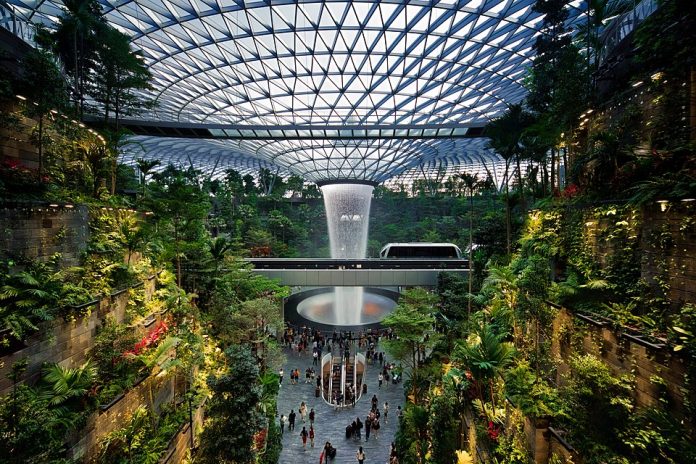Changi Airport 2025 win marks 13th global title, setting the standard for aviation design and experience
Singapore’s Changi Airport has been named the World’s Best Airport for 2025 by Skytrax, reclaiming its top spot for a record 13th time. Known for its blend of elegant design, advanced technology, and traveler-focused services, Changi continues to set new global standards. This win reinforces Singapore’s leadership in passenger experience and offers a model for the future of urban infrastructure.
Design, experience, and service define Changi’s legacy
Changi’s success is rooted in a bold idea: airports should inspire. Beyond smooth operations, the airport offers a rich sensory journey. Visitors enjoy indoor gardens, cinema lounges, and the Rain Vortex, the world’s tallest indoor waterfall.
Its signature attraction, Jewel Changi, merges terminal space with retail, art, and nature. The complex features over 280 stores, treetop walkways, art installations, and wellness zones—all inside a vast glass dome.
In 2025, Changi also won three other Skytrax awards:
World’s Best Airport Dining
Best Airport in Asia
World’s Best Airport Washrooms (inaugural)
These honors reflect Changi’s commitment to elevating every detail of the travel experience—from the essential to the extraordinary.
Regional leadership: Infrastructure built for the future
Changi’s reputation goes beyond beauty. It’s also a product of forward-thinking infrastructure. Currently in development, Terminal 5 will increase capacity by 50 million passengers per year. Set to open in the mid-2030s, it will include AI-powered systems, biometric security, and eco-friendly design.
According to The Straits Times, Terminal 5 represents Singapore’s drive to stay connected in a changing world. It positions the airport as a smart, resilient transport hub.
Meanwhile, other Asian airports are also rising. In 2025, Tokyo Haneda, Seoul Incheon, and Hong Kong International ranked among the Skytrax top six. This trend shows how Asia is investing in aviation not only for transit, but also as a form of economic strength and soft power.
Editorial insight: Changi is more than an airport—it’s a destination
What sets Changi apart isn’t just its architecture—it’s the intention behind every feature. While many Western airports face aging infrastructure and crowding, Changi shows how design, wellness, and efficiency can work in harmony.
Instead of being just a transit point, Changi acts as a cultural and civic space. As Travel + Leisure notes, its seamless mix of nature, technology, and art has made it a model studied by governments and developers worldwide.
Changi doesn’t follow trends—it defines them.
Conclusion: The airport as a 21st-century urban hub
With Terminal 5 on the horizon and ongoing investments in sustainability, AI, and integrated transport, Changi is leading the next chapter in global aviation. It’s not just an airport—it’s a symbol of Singapore’s ambition to blend commerce, tourism, and innovation in one seamless space.
As travel continues to evolve post-pandemic, Changi reminds us what the future can look like. In aviation, it’s not about being the biggest. It’s about being the boldest—by reimagining how we move, connect, and belong.













